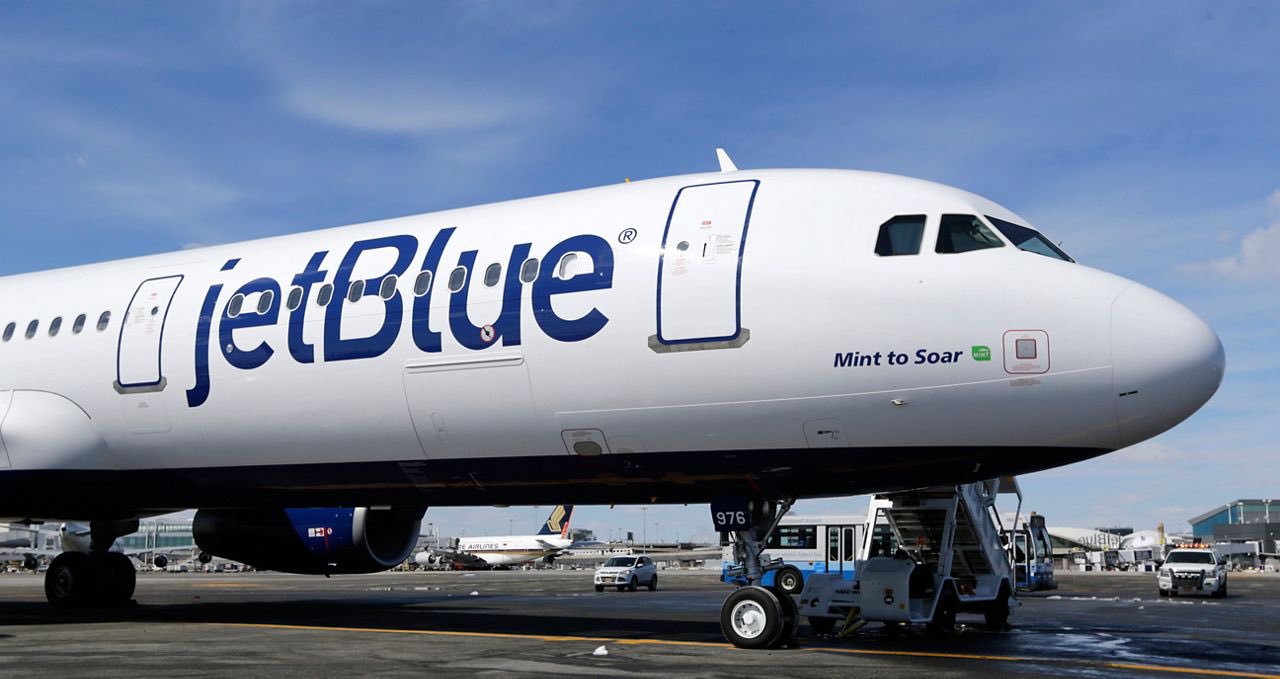


The U.S. Department of Transportation (DOT) announced Friday it has imposed a penalty of $2 million JetBlue airlines for operating routes with unrealistic schedules, resulting in at least 145 “chronically delayed flights” in the year 2022 and 2023. The press release read as,
The U.S. Department of Transportation (DOT) announced today a $2 million penalty against JetBlue for operating multiple chronically delayed flights. The penalty marks the first time DOT has fined an airline for chronic flight delays – a prohibited unrealistic scheduling practice which can harm both passengers and fair competition across the airline industry.
Half of the penalty will go to JetBlue customers affected by the company’s chronic delays or future disruptions in the next year; the other half will go to the U.S. Treasury. This marks the first time DOT has penalized an airline for chronic delays.
Unrealistic scheduling hurts both travelers and competitors, the DOT said. The DOT prohibits airlines from scheduling flights that reasonable people would know won’t depart or arrive on time.
The DOT considers flights chronically delayed if they travel the same route at least 10 times a month and are canceled or arrive more than 30 minutes late more than half of the time.
DOT said it warned JetBlue about chronic delays between New York’s John F. Kennedy International Airport (JFK) and Raleigh-Durham, N.C.
"Chronically delaying a flight for more than four consecutive months is one form of unrealistic scheduling."
"Under DOT rules, a flight is chronically delayed if it is flown at least 10 times a month and arrives more than 30 minutes late more than 50 percent of the time. Cancellations are included as delays within this calculation."
It also operated chronically delayed flights between Fort Lauderdale and Orlando, Florida and JFK, and between Fort Lauderdale, Florida and Windsor Locks, Connecticut, the DOT said. DOT said it’s also pursuing investigations into other airlines for unrealistic flight schedules.
Additionally, the department reported that it is investigating other airlines for offering unrealistic flight schedules that do not match the actual departure and arrival times.
"Illegal chronic flight delays make flying unreliable for travelers. Today's action puts the entire airline industry on notice that we expect their flight schedules to reflect reality," U.S. Transportation Secretary Pete Buttigieg said in a statement.
“The department will enforce the law against airlines with chronic delays or other unrealistic scheduling practices to protect fair competition in commercial aviation and ensure passengers are treated fairly,” Transportation Secretary Pete Buttigieg said in a statement.
DOT rules prohibit airlines from promising unrealistic schedules that do not reflect actual flight departure and arrival times. Unrealistic scheduling is an unfair, deceptive, and anticompetitive practice that disrupts passengers’ travel plans, denies them reliable scheduling information, and allows airlines to unfairly capture business from competitors by misleading consumers.
As per U.S. DoT, Each flight was chronically delayed for five straight months in a row – or more. Despite DOT warning JetBlue about the chronic delays on its flight between John F. Kennedy International Airport (JFK) and Raleigh-Durham, N.C., the airline continued to operate three more chronically delayed flights between Fort Lauderdale and Orlando, Fla. and JFK, and between Fort Lauderdale, Fla. and Windsor Locks, Conn.
The Bureau of Transportation Statistics estimates, based off of data submitted to DOT by JetBlue, that the airline was responsible for over 70 percent of the disruptions for the four chronically delayed flights.
Regardless of the cause of the disruption for any specific flight, DOT rules provide airlines adequate time to fix their schedule after a flight becomes chronically delayed to avoid illegal unrealistic scheduling. JetBlue failed to do so.
In 2018, however, the OACP stopped sending out individual warnings, given that the legislation had been around for so long that airlines should reasonably be expected to know the rules and have procedures in place to comply with them.
In fact, the DOT gives airlines a grace period of two months to start making adjustments to their flight schedules should they discover that a flight is operating late more often than not. The hope is that by the end of month five, flight schedules will be more realistic, and flights will be operating more or less on time.
Responding the penalty on a rare cause, a JetBlue representative said that the airline recognizes the importance of getting passengers to their destinations on time and that they strive to operate their flights on schedule.
Over the past two years, the airline claimed to have invested tens of millions of dollars to reduce delays, particularly those related to air traffic control issues and specific challenges in the Northeast and Florida.
“While we have reached an agreement to resolve this matter related to four flights in 2022 and 2023, we believe that the responsibility for reliable air transportation lies equally with the U.S. government, which operates the air traffic control system in our nation,” they said.
The Department of Transportation is currently pursuing additional rulemakings that would:
